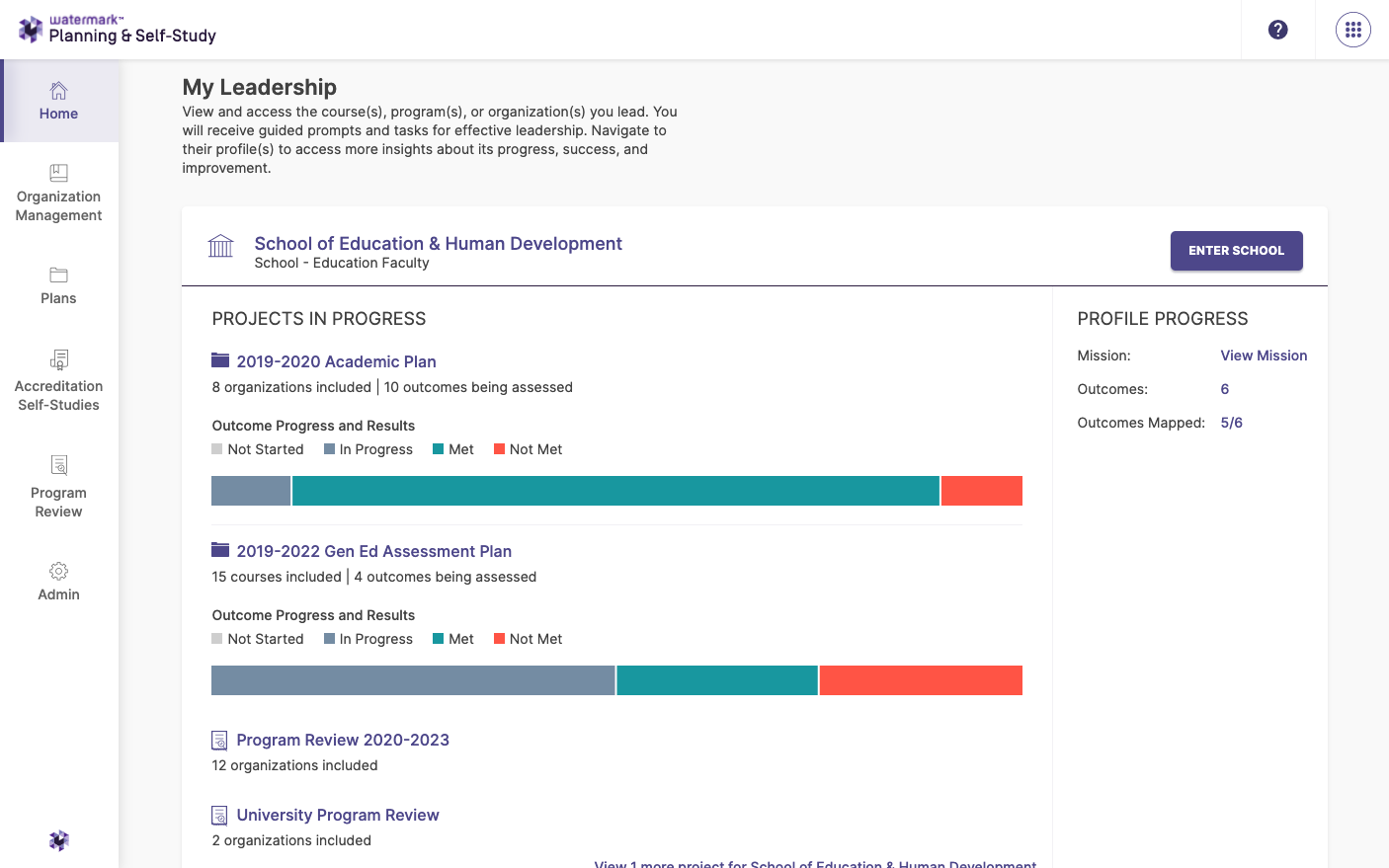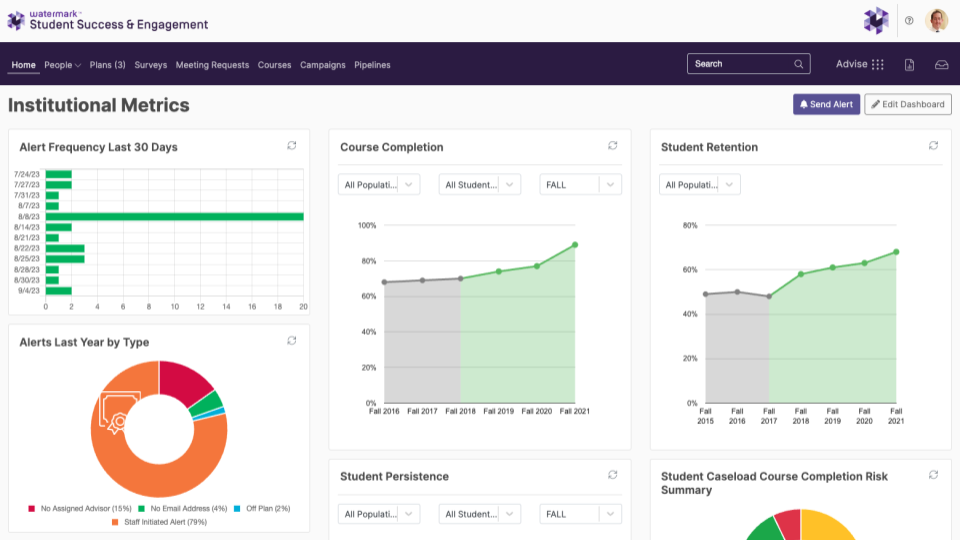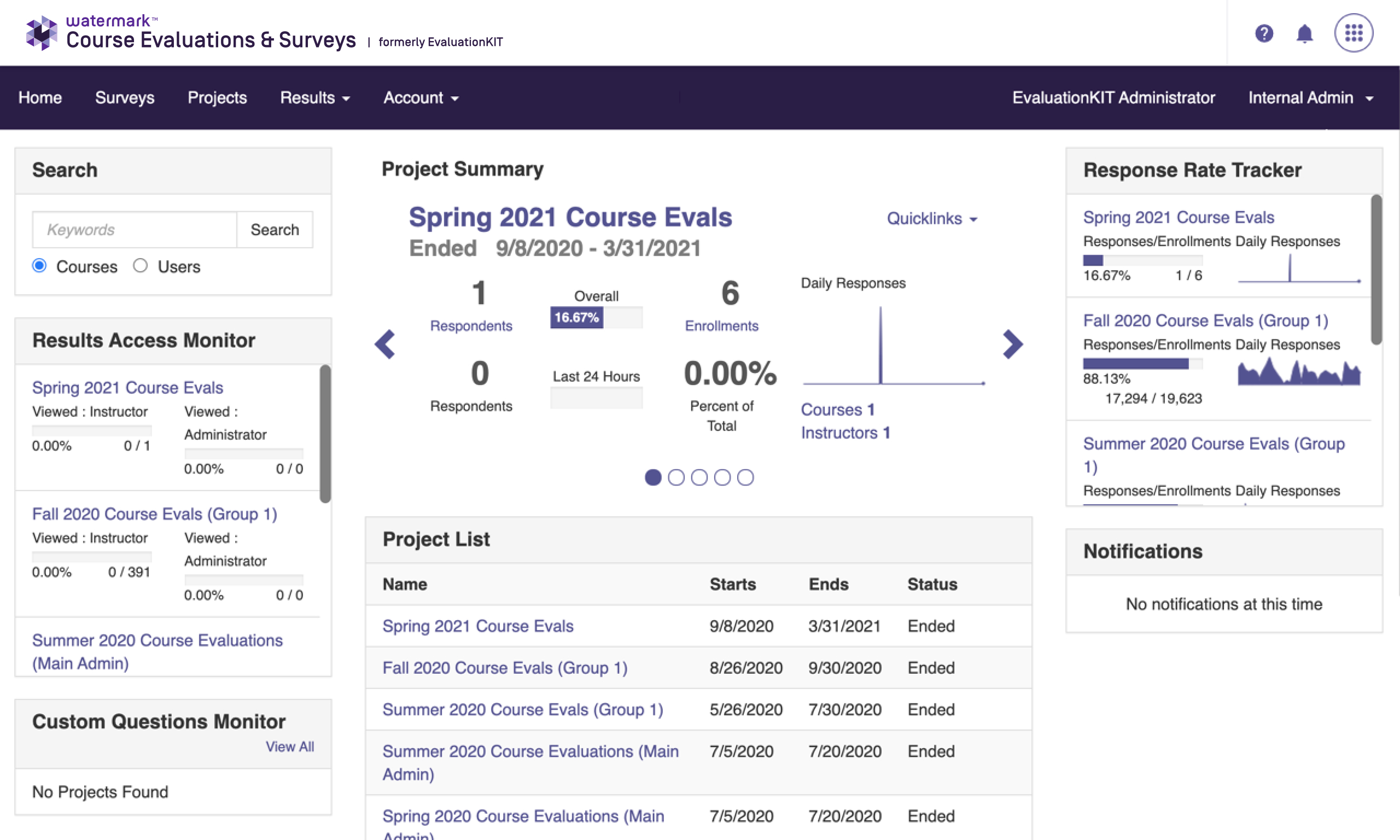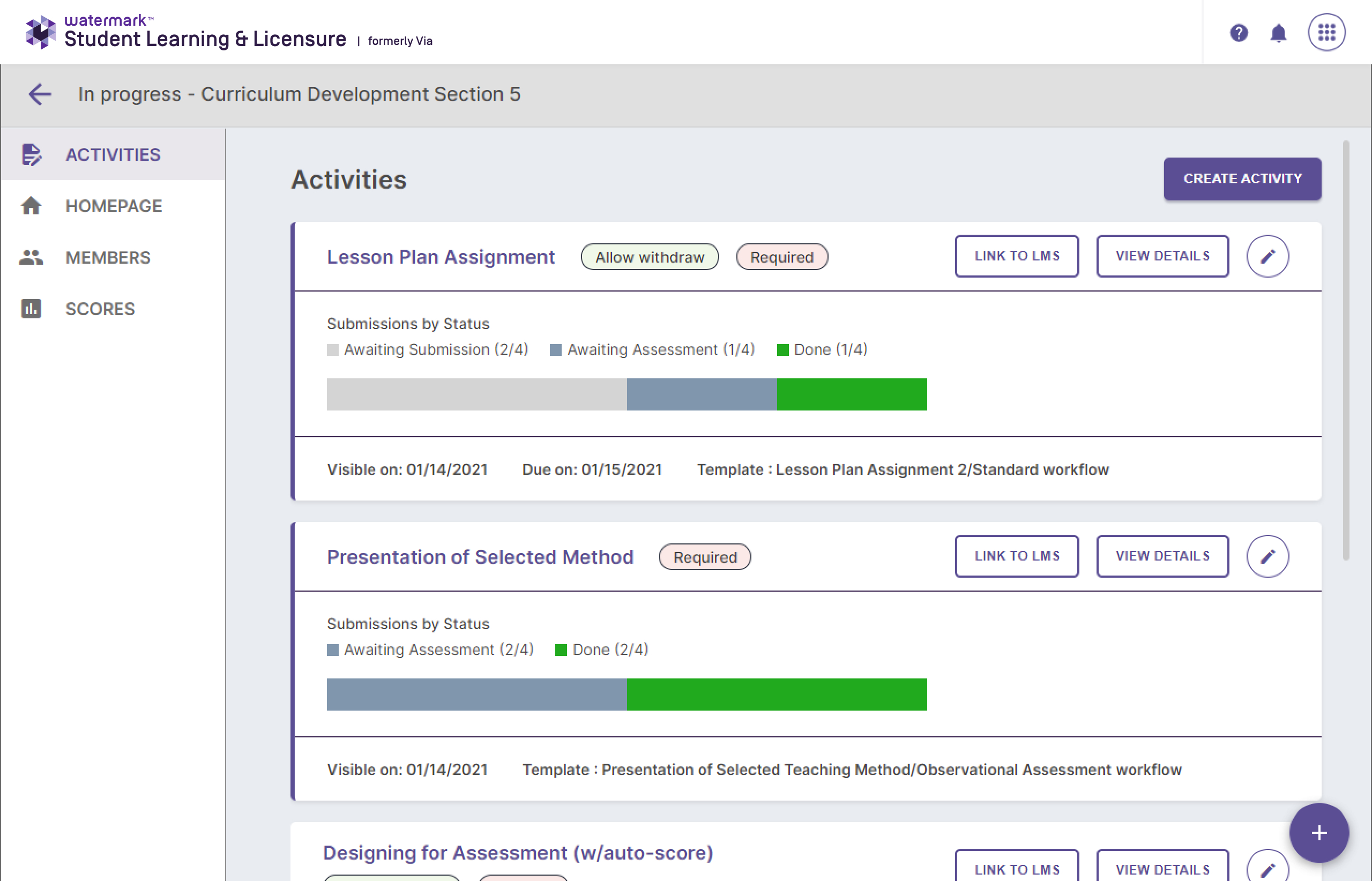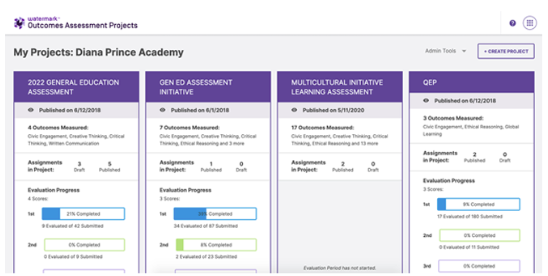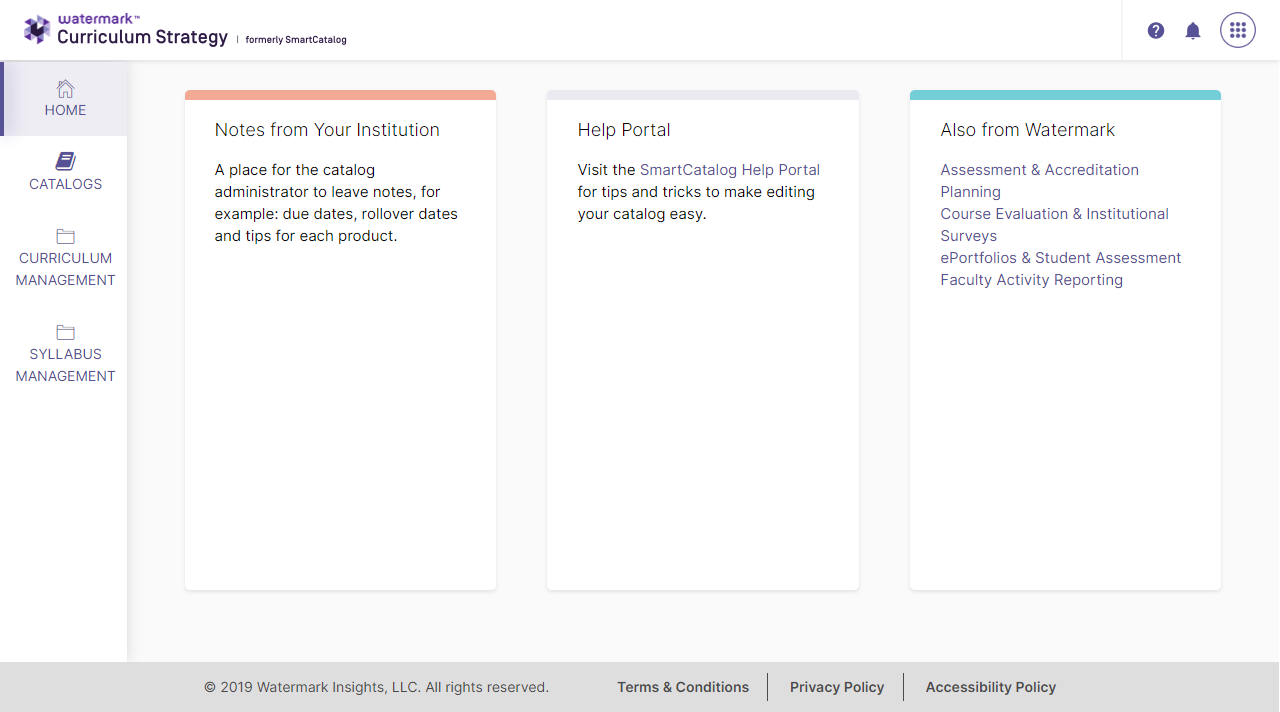Insights inspire progress
Higher ed’s #1 software suite for driving institutional and student success. Make data-backed decisions with the right insights.
Request a demo Explore our solutionsWatermark empowers continuous improvement
institutions worldwide use Watermark
personalized student engagements
faculty driving institutional success
rubrics scored
Focus On What Matters
Watermark’s Educational Impact Suite (EIS) automates tasks and simplifies data collection so you can focus on what matters most: student and institutional success. Our Insights Hub, the center of our EIS, helps you drive decisions, empower institutional effectiveness, and tell your story.
Higher education software solutions
Crafted by higher ed professionals, our tools help you track, manage, and analyze institutional data in one centralized location. But we go deeper, looking beyond the data to uncover key insights that help your students and institution thrive.
Foster campus collaboration and improvement with an assessment and accreditation platform that meets you where you are.
Use early alerts and AI-powered tools to help your student success teams keep underserved students engaged, boost student retention, and optimize the chances of program completion.
Make it easy for students to give feedback from anywhere. Flow the insights across your faculty, curriculum, and campus to foster institutional improvements.
Assess student learning in the classroom and the field, track progress to program requirements, and equip students to share their experiences with future employers.
Get quick results by assessing samples of student work across courses and disciplines with intuitive rubric scoring. Create structured, meaningful reports for general education and program assessment.
A simplified curriculum management system that streamlines curriculum development and updates your catalog in real time.
Easily highlight faculty achievements, quantify credentials, and streamline review cycles, all from one source of truth.
Our clients say it best

Award-winning software you can trust
The right technology can empower better learning, but this is only part of the equation. People are at the center of everything we do. Our team focuses on innovation and impeccable service so that we can make our solutions work better for you. With Watermark, you can improve institutional effectiveness, program quality, and student learning to make lasting change across your campus.
Browse our resource library
See how our tools are helping clients right now, get in-depth information on topics that matter, and stay up-to-date on trends in higher ed.








